#theo i will fulfill the role of the villain
Explore tagged Tumblr posts
Text

He is such a good ml right now, I hope he stays like that!
#i will fulfill the role of the villain#theo redrick#theo i will fulfill the role of the villain#bl novel#art
3 notes
·
View notes
Text
favorite games of the 2010s
Games with an American release within the 2010s. Arranged roughly in the order I played them, because figuring out favoritism is hard. Spoiler-lite. Also, in case it needs to be said, saying a game is my favorite doesn’t mean I endorse everything the game endorses.
Also important: this is about favoritism, not quality. I’m not saying these are the best games.
Okay.
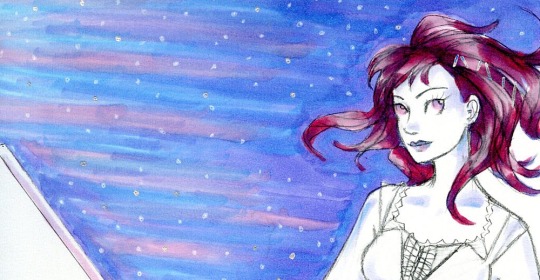
Persona 3: Portable (Atlus)
P3 was always secondary to P4 to me until Persona 3: Portable came along. This isn't everyone's experience, but being able to play games as a female character is a big deal to me. FeMC's positioning as a capable, respected leader who isn't temporary and isn’t just some guy’s love interest is so wonderful. And I love that the game allows her to social link the entire main cast. While Ken's romantic option was a terrible choice, many of the others benefit: her friendship with Junpei is rich, touching, and believable, even when it devolves into resentment; Akihiko's and Shinjiro's arcs are sweet, but also melancholy; Yukari, Mitsuru, and Fuuka are supportive best friends without all the baggage of the male MC's love routes; even Koromaru gets his spotlight. Ryoji's social link adds important depth to his character, reframing the later stages of the game. As wonderful as Elizabeth is, I find I like Theo even better. The battle system is vastly improved, and while the visuals suffer in the PSP transfer, the story's still told well. P3P remains one of my absolute favorite games and was a great start to the decade.
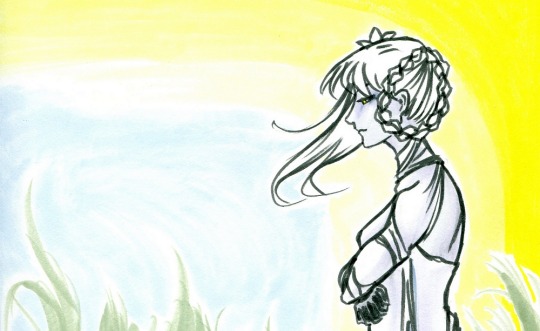
Nier: Gestalt (Cavia)
Something you’ll see repeated across this list is that I love strong, complex character bonds. The emotional core of a game is really important to me. In combination, this game has one of the most unique main casts, and, in their closeness, one of the most powerful. The jaggedness of Nier, Kainé, Emil, and Weiss fit together as an intense and sympathetic whole. You want so much to see them all safely escape the dark stories surrounding each of them. Nier's secondary strength is its New Game +, which is wrenching, but reminds the player that you never see the whole story in just your first glance.
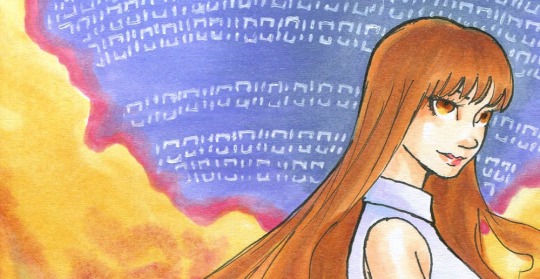
Fate/Extra (Type Moon & Imageepoch)
For seven weeks, Hakuno fights her way through a blood tournament; the story never spares her from it. Most often, a repetitive story structure is a liability, but in Fate/Extra, it builds the drama. Knowing from week to week that most of the cast is going to die – understanding, increasingly, that Hakuno may not have a happy ending waiting for her – the repetition and inevitability adds to the experience. All three of her potential Servants are interesting, funny, lovable, and morally troubling, and each plays well off of Hakuno's personality. Which Hakuno, despite being a silent protag, has plenty of. The game falls short in a number of areas, but for me, intercharacter relationships are always a big deal, and Hakuno's bond with each Servant is detailed, compelling, and develops across the entire game.
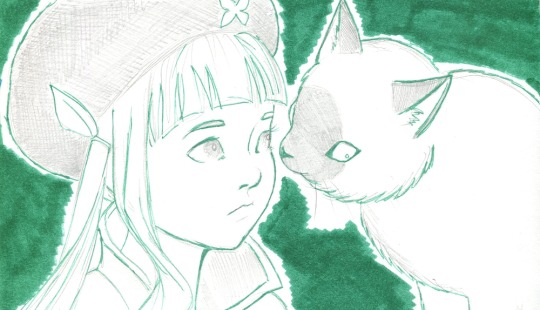
Tales of Xillia 2 (Bandai Namco Studios)
The original ToX is the richer, more complete, more epic game, and definitely the place where you should first meet these characters and this world. But for me, ToX2 edges out its parent for the uniqueness of its premise, its endearing silent protagonist, and the shattering twists and turns of its later plot points. I don't usually like kid characters, but Elle is a useless sidekick worth fighting for, every inch of the way.
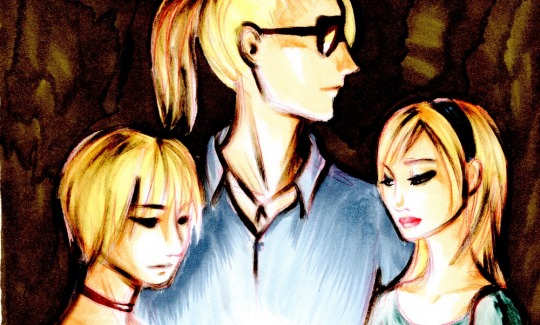
Resonance of Fate (tri-Ace)
Set in a broken post-apocalyptic city, this game feels like a combination of Wild Arms and Xenogears. The story is intense and cryptic with a carefully controlled delivery to the player. The three main characters hide their wounds as well as their strengths – until circumstances force them into the open. There's some regrettable juvenile humor, and the story remains too shadowy in places, but Vashyron's, Leanne's, and Zephyr's bond kept me wanting to know more about them and the punishing circumstances they've been left in.
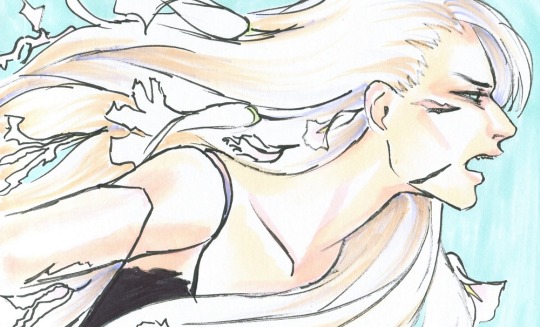
Nier: Automata (PlatinumGames)
Nier: Gestalt taught me that not everything would be as it seemed, and Nier: Automata fulfills that warning a second time. But what makes me love it are the three protagonists, 2B, 9S, and A2. Throughout the different story paths, each one sees their role change from hero to antagonist or antagonist to hero relative to the others' positions. This is such a stand-out concept, and it's written very well. Even when a character shifts from hero to antagonist, they still keep your sympathy; perhaps you don't agree with them, but you still feel for them so much. Incredible music and rideable moose are also a plus.
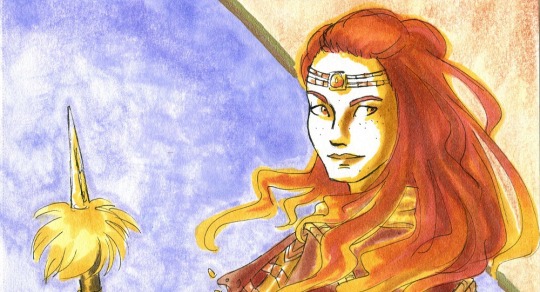
Horizon Zero Dawn (Guerilla Games)
I can always find room for improvement, but, for me, there's just too much to love about this game. Traveling over the gorgeous environments is wonderful by itself. The gameplay is engrossing, allowing you to try so many different strategies across different fights. The npcs are intriguing. The setting is unique. The monster designs are fantastic. The game gives you reasons to want to fight the villains, yet doesn't leave them unrealistic or ludicrously unrelatable. The hero, Aloy, is no-nonsense but not invincible, practical but also tender, and it's so satisfying building her legend alongside her. The story ends satisfyingly, but leaves the world wide open, just waiting for a sequel. This is a horizon I want to cross again and again.
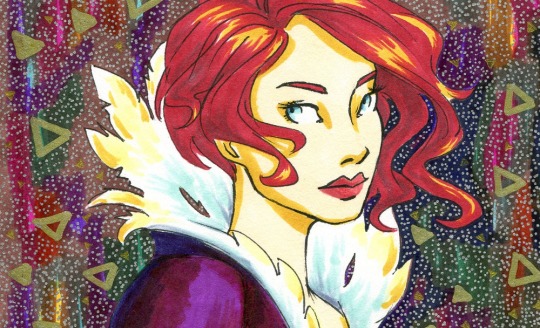
Transistor (Supergiant Games)
People complain about the story being too obscure, and that's justified at times. But the heart of the game isn't about plot – it's about emotions. Specifically, the emotions Red and Boxer have towards the city, and the emotions Red and Boxer have towards each other. The game organically builds both of these relationships across five hours of gameplay, latching right on to the player's heartstrings and making you worry and fight every step of the way. The gameplay is deeply customizable, the art direction is velvety and lush, and the music is not only gorgeous, but sometimes subtly intermixed with the narrative. The world is shrinking around these characters, and you want to see them through to safety – and you wish you had more time to know them better.
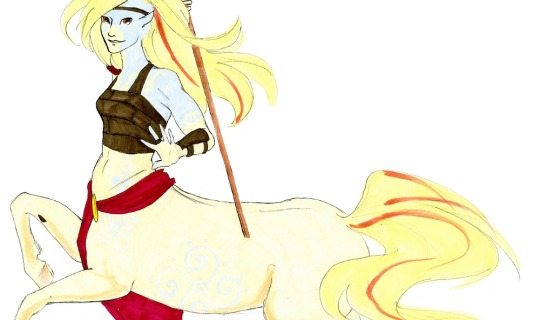
The Banner Saga (Stoic Studio) (all three games)
Its narrative overlaps different plot arcs. There's more than one hero. The story is mature and serious, often threatening you with despair, but still urging you to believe that somehow your brave characters can make it through safely. Your decisions directly influence who lives, who dies, and where the story turns. The music is haunting. The game evokes Lord of the Rings, from its art style to its Norse influences to its focus on the significant actions of humble people. But it still shoulders its way out of that shadow with its giants, centaurs, and multiple central female characters. A game you want to play repeatedly, if you can stand the responsibility of having so many characters’ lives in your hands.
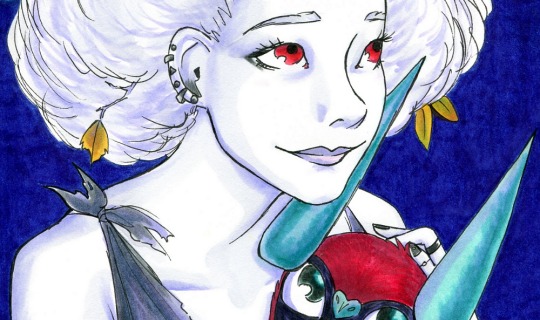
Pyre (Supergiant Games)
Purgatory Basketball sounds like a nightmare premise for me, focusing on the kind of gameplay I'm terrible at. However, the game is accommodating enough that I not only won my rites, I enjoyed the process. Even when I was bad at it. But what makes me love the game is its cast. While not all characters can get equal focus on a single playthrough, each is interesting, some very outside the typical RPG character cast. The main villain is handled atypically, and the story avoids many of the tired plot beats I've gotten sick of over the years. The main character, the Reader, is given a surprising amount of flexibility, and they're just another one of Supergiant Games’ protagonists who are silent, but still make a definite impact on the game's story and playing experience.
In short, this was a good decade for me, game-wise, especially in the last two years. Hopefully there will be lots of stand-outs in the 2020s too.
#2010s games#favorite 2010s games#persona 3: portable#persona#nier#nier: gestalt#nier: automata#fate/extra#fate#fate series#tales of xillia 2#tales#tales series#resonance of fate#horizon zero dawn#guerilla games#transistor#supergiant games#pyre#the banner saga#banner saga#stoic studio
55 notes
·
View notes
Note
Since the old villains in Word Up have been reformed, mind sharing what happened to them and how they turned their lives around? Do they play any part in Word Up?
Okay, so this time I was smart and decided to type this out in a word document!
Long post warning!
Before getting into each individual villain (or most villains, there’s just so dang many of them! I’m sure I’ll forget someone!) I want to talk about them as a whole.
All of them are reformed, and Tobey was basically the start of it all. He inspired several other villains, who inspired others, and over the years they all slowly gave up villain life. The last ones to quit (either BLHG and Invisi-Bill or Rhyme and Reason or both) did so after WordGirl retired from being a hero, because “everyone else did it and it’s not going to be any fun without WordGirl!”
After a few villains went good, Tobey and Dr. Two Brains co-founded the Anti-Villain Association (AVA), which was designed to be a place where villains, or even just minor criminals, who wanted to go good could go to discuss their struggles and experiences with switching sides (it’s kinda like a villain AA meeting). I don’t have many plans for each individual villain to play a major part in the story, again because there’s so many that would have been hard, but the AVA does play a part and so, by extension, the villains do play a bit of a role. However, I think most of this will go to Two Brains since he’s the co-founder and the other co-founder will be busy with all the other plans I have for him XD.
Many of their old weapons have been discarded, but also many of them are still around. For some, it’s to use in case of emergency (like a break-in), others have found other uses for their weapons (you better believe Chuck uses his condiment ray to make sandwiches!) others just couldn’t bear to destroy them (Tobey still has some surviving robots that were designed to crush the city, they’re happily living deep deep deep in the woods because Tobey didn’t feel right about destroying them for no reason), and some weapons are more difficult to destroy (like Mr. Big’s mind control, I’ll go into that a little more when I talk about him.)
Very few of them had kids, for a couple of reasons. 1. Many were too busy trying to turn their lives around to make a family life a priority 2. Many didn’t think they’d make good parents given their criminal history 3. There’s like 30 something villains and I wasn’t about to create children for each of them that’s just so many characters I would have had to make from scratch and I already had Theo, Julie, Emma, and Daisy, not to mention the new villains I had to make and I wanted everyone to have a little bit of depth so yeah… The ones who did have kids (and I might forget someone so sorry in advance if I did) are Tobey (obviously), Victoria, the unnamed henchman of Dr. Two Brains and The Butcher
Now let's get into them individually. Many of them I don’t have the story (at least not yet, if I get time I may start brainstorming that) of why they retired as villains, but for almost all of them I have ideas on what they’re up to now because I thought that was a little more important.
Dr. Two Brains- Was the second villain to retire. He saw Tobey doing such a great job and realized he missed that life for himself and said, “well if that little shit can do it, so can I!” He knew he could ignore the mouse brain’s evil desires, as long as he could fulfill its cheese desires, so his first step was to find a legal way to get a lot of cheese. So, he and his henchman started making cheese! And because Two Brains couldn’t wait, he decided to make a cheese aging ray. Suddenly he was able to produce quite a bit of cheese in record time. And actually, could make more than he could eat. He started selling his cheese and now is the main source of cheese in the city! The company slogan is “Evilly delicious!” And I was thinking about this today at work and realized he’s probably made a lot of money from this because with the aging process completely cut, he can probably charge less, but there’s something called “perceived value” where people think if something is super cheap then there must be something wrong with it, so you want to shoot a little higher when pricing products, so Two Brains probably has to have his cheese priced higher than he needs, so he probably has a pretty decent turn over rate! Anyway! As mentioned above, his unnamed henchman had a daughter, who Two Brains considers a granddaughter. She is aware of her interesting family’s criminal history and accepts it. She loves cheese but she’s not a fan of helping in the cheese-making process.
Chuck and the Butcher- (their stories are so linked it just made more sense to talk about them together) Were the third and fourth villains to go good and did so pretty much at the same time, for similar reasons, those reasons being “this isn’t fun anymore, I’m not getting anywhere with it, and look at what a great job Tobey and Two Brains are doing!” After retiring they partnered up and started a sandwich food truck, which today is a full-blown restaurant. Chuck does most of the sandwich making, but Butcher helps and he’s the meat supplier (guess where they get their cheese from!). I mentioned that the Butcher had a child. He has one son named Kale and a grandson named Baker. His son and grandson have powers like him, with Kale’s being vegetable related and Baker’s being bread-related (bread, not pastries! Important note! However, Baker does like to bake pastries, he’s about eight BTW). Kale and Butcher’s relationship will have a bit of focus in Word Up, and Kale will be a reoccurring character. Kale is very prideful and independent and will do just about anything for Baker. Kale is aware of his dad’s criminal past, Baker probably is aware too, but IDK maybe not. Chuck being close to the Butcher is naturally close with his family. Besides that, he still spends a lot of time with his mom and Brent, who he has a bit of a healthier relationship with now.
Granny May- The fifth villain to retire, and she basically just retired. She basically said “well I’m done! This is getting old and so am I!” She’s still alive, currently having the honor of being the oldest person in the city and is living in an assisted living facility. She’s pretty “together” mentally (how I describe residents at the assisted living facility I work at who haven’t been taken over by dementia yet). She uses a scooter now but carries a cane with her. Why? To whack people who need to have some sense knocked into them of course! Other AVA members are happy to pick her up for their weekly meetings and drive her back home, despite her claims that she could still drive fine “if they would let me!” (don’t let this woman go behind the wheel anymore, don’t listen to her!)
Mr. Big and Leslie- Mr. Big was inspired by the villains before him turning their lives around and claiming to be much happier. He tried this and struggled a lot. He eventually realized his issue was greed, it was too strong for him. So, he gave everything up, he gave his company to Leslie and basically became a minimalist hippie (again, my love for irony shines through!...also I thought the idea of Big being a hippie was HILARIOUS). Leslie has run the company ethically ever since. Today it’s essentially Amazon with morals. Mr. Big and Leslie are friends and talk all the time. Their mind control tech is still around, the reason I’ve decided is that some of the later tech was so powerful that destroying it might unintentionally send out a mind control signal. I’m open to better suggestions; I just need the mind control tech to still exist and be something someone could steal…hint hint….
Ms. Question- Eventually got a job as an interrogator for the police station! She’s the best interrogator there is! She doesn’t typically use her powers on people to get them to confess, usually, they just break from the mass amount of questions she asks, but in more extreme circumstances she is willing to use her powers.
Learnerer- Like Ms. Question, Learnerer found a better gig with the police force. He’s the city’s detective, and rocks at it with all his “learninging” skills. He looks for clues and learns how criminals commit crimes and uses that information to catch criminals in the act and stop them. He often works with Ms. Question.
Amazing Rope Guy- Actually got decent at rope tricks and is an entertainer now! I won’t say he’s incredible, but he’s alright! The other AVA members often hire him for entertainment events (he’s been to several of Theo’s birthday parties and Theo has politely asked his parents to not do that anymore, so now they’re gonna hire him for Julie’s parties) more to support him than because of his skills
Whammer- is a professional demolisher. You need an old building torn down? Call the Whammer! You need to gut the kitchen of a house you’re flipping? Call the Whammer! Need to clear an area of land for a project? Call the Whammer! Need snow off the street so people can get home? Call the Whammer. He loves his job
Lady Redundant Woman- She kept moving up in her job at the copy place, and eventually had learned to do every position there. With this knowledge and skills, she opened up her own copy place where she and her copies are the sole employees. Turns out your business can make a lot of money when you can have the exact right amount of employees at all times and don’t technically have to pay them because they’re technically you!
Hal Hardbargin- Sold his villain inventions and blueprints to the police station so they could have a better understanding of how certain villain gadgets work and therefore how to stop them. Also has made a few honest weapons for some heroes
Seymore- Hosts a self-made YouTube (or YouTube-like website) show called “Can You Spot the Scam?” where he helps innocent citizens learn how to spot scams
Big Left Hand Guy and Invisi-Bill-I never could think of what they’d be up to, so I decided they are still trying to figure out what they should do next. (because my favorite thing when I have a writing problem is to take advantage of it and turn it into a plot point! …something I did with a very important plot point in Word Up that will be revealed in Return to Fair City)
Rhyme and Reason- again I don’t have too much an idea of what they’re up too, but I like to think they are a QPR because I like platonic partnerships!
I talked about Victoria and Eileen here Thanks for the question! Feel free to ask more!
35 notes
·
View notes
Note
Fanfiction portraying Deaton as cowardly or unwilling to get his hands dirty. Umm. Did y'all miss how he infiltrated a yakuza base to treat the leader's wolf dog + *poisoned* (nonfatal) the members so he could acquire the lichen? All to help Scott and Stiles? He literally saved Stiles but lowkey, y'all are mad the nogitsune was separated becuz Void!Stiles fulfilled a white power fantasy with a touch of ~exotic~ mythology. Esp since Deaton didn't make him his apprentice like Yen Sid
I never knew the wizard’s name from Fantasia. Thanks!
You see, one of the problems I think that the Teen Wolf production had to grapple with is that they recognized the overwhelming interest in Stiles throughout the fandom, which like any good show would do, but they also realized that their original plans for the series would run counter to what the fandom wanted.
I really think that in Season 1 and 2, the production planned to have Stiles eventually evolve into Scott’s Emissary. They stressed the bond between them, they stressed how Stiles sometimes gave Scott needed reality checks, they stressed that Deaton no longer wanted to be an Emissary, and they had that scene in Raving with Stiles performing an amazing stunt with mountain ash. The narrative thrust seemed to be going that way.
But, unfortunately, they ran straight into Fandom Power Fantasy expectations.
A large part of the fandom wanted – needed – Stiles to stay completely human. Even though it made no sense for Stiles to remain so heavily involved – especially in later seasons where the villains, such as professional assassins and Dread Doctors, had no reasons to pull punches – when he was unable to defend himself with anything but sarcasm and a baseball bat, and it hampered the writing. (This was the sole reason for the computer tower nonsense in Season 4 – to give Stiles something to do during Monstrous.) The power fantasy was that Stiles would be as important and effective as Scott while still being vulnerable and flawed. You’ve seen this contradiction in plenty of stories, I’m sure. How many portray Scott or Derek as dismissing Stiles as a weak human (which only Derek did on the show and only once), only for him to show them how important his stupid research is.
Another large part of the fandom wanted – needed – Stiles to become an All-Powerful Archmage – or even Kylo Ren – for reasons based solely on skin color, supposed attractiveness, and the Trauma Olympics mentality. The idea that Stiles was just a foil for Scott was inconceivable to them, so they dreamed of the coming of all-powerful Wizard or Void Stiles. You’ve seen stories like that as well.
I feel the production’s original intent was for Stiles to step into Deaton’s role as a real Emissary for Scott – knowledgeable, insightful, and a counter to both Scott’s reluctance to use his power and his lofty ideas – as the character grew due to his experiences. It would have been perfect, but Scott would have remained the focus of the show. (I can’t help but think of the President/Leo McGarry dynamic from The West Wing.)
Well, fandom pressure scrapped any real character growth for Stiles, so they Improvised. Ever notice that, as well as Season 03B was written, it wasn’t foreshadowed in earlier seasons like the True Alpha story line of 03A was? They wanted to make Powerful Stiles but also have the ability to take it away so they could keep Human Stiles. They hoped that this would satisfy both parts of the fandom. It didn’t. Just like the St*r*k scenes in 03A didn’t satisfy the St*r*k shippers, the Void Stiles scenes didn’t satisfy either faction.
They tried again in Season 5. They gave us plenty of Stiles as Flawed Human whump, but they also gave us Powerful Stiles by beating the crap out of Theo and Scott (for no discernible affect. It didn’t affect Theo’s story and it didn’t affect Scott’s or Stiles’ stories. They were isolated scenes that were merely fan service.) These attempts satisfied immediate fandom cravings, but they also made a complete hash of Stiles’ character. Ever notice that Stiles didn’t do much of anything during the last four episodes of Season 5? You could have removed him from those episodes and nothing would have changed. This is a direct result of fandom pressure coming in two different directions and rendering what could have been a dynamic character static.
I wonder what would have happened if they had kept on, as I suspected, their original plan. I think it would have been a lot more satisfying for fans of Teen Wolf, though it would have alienated the fans of Teen White Human a lot.
23 notes
·
View notes
Text
Thoughts on ‘The Beginning’
So - as with The Trial of Jim Gordon, I'm going to regard this episode as an extra, and do some meta as opposed to a full recap. My rationale is pretty much the same: this is an optional easter egg, and one that can easily be regarded as outside canon if desired.
Also - I found the deeper message, like that in The Trial of Jim Gordon, was so unpalatable it strained the show’s broader ideas and themes. So I’ve decided it’s not part of canon, for me.
Thoughts after the cut. Same disclaimer as with The Trial of Jim Gordon. I love the show. I tweeted like a maniac as episodes were airing, and got booted from Twitter. I want another network to pick it up.
However, my idea of meta is the old fandom one, which is critical analysis. If that’s not your thing, fine - but that’s what I’ll be doing here.
So, first things first.
I understand the rationale behind the time-jump, to an extent. The two extra episodes were just that - extra. One was spent on The Trial of Jim Gordon, which I have already been salty about in another post. This one was a sort of nod to the fans - offering Batman as a sort of reward. I’ve always been more interested in the story Gotham actually set out to tell, though, the story before Batman. The story of the city and its inhabitants. As such, I was always going to be less taken with an episode which was fundamentally mostly interested in giving us Batman.
But there were a couple of other issues that confused me. Gotham has always presented its own vision of the city, the characters. It’s shown it can be creative with canon, as well as adding its own ideas. Not only, for example, is their take on Oswald unique, but Fish Mooney – so pivotal in his development – only exists within Gotham’s universe. We got the Executioner and Cyrus Gold – yes, but we also got Nathaniel Barnes and Butch Gilzean, who had character and stories and lives all of their own.
I like that it thumbed its nose at Jim’s moustache. But go all the way with it. Yes, we know Batman’s coming. But if you want to continue to focus on Jim, and his wrestling with the notion of heroism – then just do that. Have the courage of your convictions. You can draw inspiration from the 60s series if you want, but you’re not shackled to it: Oswald doesn’t have to don a top hat and become 60s Penguin if you don’t want him to. The city doesn’t have to morph aesthetically into something we saw in the movies. You’ve told your own story. See it through.
That aside - the details.
The flash-forward was also a difficult ask because the story has been unnaturally cut short. Characters who were still wrestling with huge issues didn’t really get to address them in a truncated season and - as such - it’s sort of hard to accept where we find them now.
For example
We’ve seen Jim deal with several demons over the years. He has major issues with authority. His relationship with his father looms large. He wants to be a hero, but gets on better with the villains. He compartmentalises like crazy. He’s emotionally dishonest with others and himself. He enjoys playing dangerous games. He can’t resist a pissing match.
Am I to honestly believe that Jim has been entirely clean and pure in the interim? Why? Because the city was saved after near destruction? That’s happened before – he didn’t change. If anything, he’s more likely to have reverted to old habits once the crisis was over. Is he reformed because he’s a father now? Didn’t stop him killing Theo Galavan while Lee was pregnant.
Jim’s development was still very much in progress. As such, he feels unsatisfying here and - given what we know about him - you can’t help but feel he’s probably been up to his old tricks, but we’re just getting to see the sanitised surface of his life.
Lee likewise generally suffered quite a bit from the truncated season, and is good example of how the flash-forward doesn’t serve characters well.
In season 4, we saw her explore a darker side to her personality that the show has strongly and consistently hinted at since way back in season one, explicitly – when she says that Jerome’s confession of matricide thrilled her, and implicitly, when we wondered why the hell she was working in Arkham. We also saw her enjoy power in season 4. We saw her deeply committed to improving the lot of the residents in the Narrows, even if her way of going about it was short-sighted. We saw her shoot Sofia Falcone point-blank in the head in cold blood. We saw her, although many hated it, form an intense romantic relationship with Ed, where she seemed to find a fulfilment and recognition that she never found with Jim or Mario.
However, in season 5, the show clearly needed her to quickly step into the role of Mrs Jim and stepmother to Barbara. This meant becoming the angel at the hearth again, so it essentially erased those experiences, all that new characterisation.
As such, like Jim, she feels flat here – like we’re only getting to see a facade. She’s back in her old post of intermittently saying supportive things to Jim, and apparently quietly looking forward to him quitting his job. When she's bizarrely given the task of defusing the bomb, as Lucius the tech specialist stands by the side - it really only underlined that stripping her of all that history and characterisation meant that she doesn't really have a real role of her own in the wider workings of the city.
Now to the heart of my problem with this episode.
We’re told, without any explanation, that Oswald was sent to Blackgate shortly after reunification, and Ed to Arkham.
Now, to be honest, I find this fairly implausible. In all the rebuilding efforts, I doubt the authorities would have the will or energy to go back and rake over who committed what crime when the city had been abandoned by the government. And even if they did, both their actions – willingly manning the barricades (Oswald sustaining an injury when doing so), would have likely gone some way to mitigating everything else.
You could argue that it's for some nameless crime they committed later - but the show could easily have indicated that by throwing in a line about some heist or scheme they tried to pull off that ended up with them being put away.
Mayor James - ‘Oswald Cobblepot is getting released tomorrow’
Harvey - ‘Should have got 20 years for that stunt he pulled after reunification - not 10. So should Nygma.’
It didn't take the trouble to do that - so I'm left assuming they were sent away on the basis of crimes committed during the split.
However, this poses us with some problems both in terms of the plot, and more deeply in terms of narrative repercussions. Because if we are going to start to get persnickety about charging people with crimes they’ve committed, and then having them face actual consequences – well, we saw Barbara shoot loads of randoms in season 5. Going back not too far, Lee shot Sofia Falcone in the head. Going back further still, Jim murdered Ogden Barker and Theo Galavan, and was indirectly responsible for several deaths by inviting Sofia Falcone to town.
So – then – if we’ve decided that actually charging people and sending them to prison is now the done thing, why are we so selective with who’s punished? Gotham is a show with a million shades of grey. It gives its villains humanising back stories and motivations – but it ultimately still wants to punish a select few like it’s a black and white universe. You can’t do that when your good guys are equally tainted. Not unless you want to give off an unfortunate stench of hypocrisy, anyway.
Oswald flat-out asks Jim on the pier. I could have escaped this city. I chose to stand shoulder to shoulder with you and defend it. Why was I punished?
It’s telling that Jim never actually furnishes Oswald with any good answer to his question on the pier. Because - over the years - the show itself has never quite figured out how to answer this one. He can’t answer. What could he possibly say?
Why then, do some get away scot-free, while others are punished? Why, as Ed observes, do some get to make choices - while others never get the chance?
Jim and Lee are ‘heroes’ (arguably wandering into designated hero territory, at points). They're never going to face consequences for anything. Jim going on a self-pitying drinking binge doesn’t count - not compared to a ten-year stint in Blackgate or Arkham. Lee never expressed any remorse for Sofia.
As for Barbara, well Barbara is brought back into the heroic fold, too.
First and foremost, she’s offered moral redemption by bearing Jim’s child. Becoming a mother meant all previous sins were forgiven.
When we meet her here, we see now that she’s wealthy and powerful – playing a serious role in the city. It’s empowering in a way – but it’s also a means of re-affirming the established order and putting her back in her box. Remember that Barbara is from one of Gotham's elite families - and she's finally behaving like someone from an elite and wealthy family would do. To make her position clear - she’s explicitly placed in the same category as Bruce here in terms of her wealth and control of the city. I’m assuming that pregnancy also made magically clean whatever money she used to buy up the city when it was on its knees. She didn’t seem to have access to her parents’ cash before now - so she must have used her ill-gotten gains.
(I would argue that strategically buying up parts of the city post-reunification is screamingly Oswald, but like other chunks of his characterisation and storyline, it got sent Barbara’s way in season 5 in a bid to flesh out her character)
Last up, she’s not demanding a romantic relationship with Jim anymore, but they’re now forever safely tied in that context due to their daughter - there’s no mention of Tabitha, or casual mention of a new partner. Troublesome, restless Barbara, poor little rich girl – demanding of Jim’s time and attention, namelessly unhappy, and with a murky ‘past’ is now ‘fixed’ and neutralised.
Thinking about those brought into the fold necessarily asks you to think about those who were excluded.
Oswald might have roots in an elite family, like Barbara, but - crucially - he’s also one part poor immigrant (as well as all his many other markers of 'otherness'). He can’t escape this - we got his jangling east European music as soon as we saw him in this episode, and we were reminded of Gertrud when he said he would lay flowers on her grave as his first act after his release.
Ed’s background is unknown, but we can safely hazard a guess that there’s no moneyed upper-class upbringing there. He was also willing to step up when it counted, and was even used by those in power for their own ends during the break – but none of that counts for anything, apparently, and he finds himself in Arkham. You could argue that Ed is unwell, and needs to be in a hospital – but Arkham is not shown as a hospital in any meaningful sense in the show. It’s an oubliette, where you send those you just can’t be bothered dealing with. It doesn’t look any better here than we’ve seen it before. Why hasn’t anyone tried to improve it? Again, they don’t have to succeed - if you’re determined to stick to canon, but why not suggest that Jim or Lee or Lucius has at least tried to have conditions improved or an official review launched into treatment of inmates? It would go a long way to nodding to the long and complex histories these characters have. However things ended – Lee and Ed had a pretty intense relationship. They cared about each other. She can sleep at nights knowing he’s in Arkham?
Jeremiah might have been clever enough to win himself a scholarship and a way out of the circus – but it’s not enough to enable him to escape his past – either explicitly, when he was hunted down by his resentful brother, or implicitly – when he winds up in a similar situation to the other outsiders. Yes, Jeremiah might have been manipulating the situation – but he was still sent to Arkham and left vulnerable to casual abuse. Whether it’s intended or not, Jeremiah’s accusation of abandonment can be read more deeply. Bruce left town - but, just like Oswald and Ed, the city in general abandoned him.
Selina’s an example who, I would argue, reinforces that this moral order of the universe. She's always been depicted more ambiguously - capable of villainous acts, but tied to the heroes through her bond with Bruce. This is reflected in what we learn about her here. Like Jeremiah, she's been punished by Bruce's abandonment, but her grey heroic status means that she doesn't lose her freedom, despite living a life of crime.
So what picture are we painted of the city?
Aubrey James is back in charge - corrupt as Oswald ever was as mayor, but less competent. The city’s remains were picked clean by Barbara - it’s now seemingly largely owned and controlled by two scions of the city’s elite. The commissioner’s got more than one murder to his name. His wife has one attempted murder to hers - giving her the benefit of the doubt and assuming that Sofia’s still in her coma. Arkham’s still a hellhole.
What does all that say? Like I said before, you can argue that this was the inevitable endpoint – but you’ve changed the story already, so that doesn’t wash.
What you’re left with is the outsiders comprehensively punished. You can sacrifice your chance at escape and an easy life in favour of standing shoulder to shoulder to defend the city, you can be unwell, you can be a victim – doesn’t count. No matter what you do – you’ll always be an outsider anyway. You can’t win for losing. Some are chosen, some aren’t. And if you’re not, tough luck.
So in this universe, why the hell not don a showy suit and your best hat and commit yourself to villainy? Go for it, I say.
(Yes - I’m aware this is more analysis than it warranted, and it really just wanted to say ‘look Oswald has a monocle and Batman’s here now!’ - but I felt the need for venting meta)
24 notes
·
View notes
Text
Interview Magazine Clive, 2015
https://www.interviewmagazine.com/film/clive-owen#slideshow_48144.7

There are moments in Clive Owen’s performances— many, many moments—when his eyes seem to go white hot, when he looks to be possessed, by a demon, a drug, or the religious fervor of a maniac. This possessor is very often so powerful it threatens to propel him toward its end no matter the evident destruction being done to his body—the rumpled suit of flesh of which might, at any moment, sag off him entirely. Not that that would stop those eyes from getting to where they are going. As he tells his friend, fellow actor and musical legend RZA, Owen likes to walk a knife’s edge with his characters. And it can be terrifying to see him do it, from his haunting breakout role in Mike Hodges’s great Croupier (1998), in which Owen plays a sociopathic card sharp with seething charm, to Mike Nichols’s Closer (2004), in which Owen embodies sexual obsession unto the point, nearly, of self-immolation. Owen’s globe-trotting Interpol agent Louis Salinger in Tom Twyker’s The International (2009) is probably the world’s worst co-worker and maybe its greatest villain hunter. Like so many of Owen’s greatest creations, Salinger is a man who torches his life and well-being on the pyre of his crusade. And nothing will stop that crusade. Even Owen’s sad sack Theo, a scarred former revolutionary in Alfonso Cuarón’s adaptation of the apocalyptic P.D. James novel Children of Men (2006), manages to muster a powerful, messianic purpose.
But Owen’s Dr. John Thackery, an obsessive surgeon in turn-of-the-century New York, in Cinemax’s The Knick, is peak possession—a semi-functioning addict driven to Icarus heights by cocaine, ambition, and garden—variety narcissism. On the gladiatorial stage of the Knickerbocker Hospital’s auditorium-style operation room, spattered by blood and viscera, his smock and eyes a blazing white in director Steven Soderbergh’s light, Owen’s Thackery is like something out of Goya—his hound-dog face falling to bits with fatigue, and those eyes are a marvel of passion, paranoia, discovery, delirium, regret, and maybe just plain old madness. And The Knick, which returned for its second season in October, along with Owen’s return to the stage after 14 years, in Harold Pinter’s Old Times on Broadway this fall, seems to fulfill the promise made all those years ago by Croupier: Owen, at 51, is now, as he was then, one of the most intensely watchable actors on screen and stage.

RZA: I would say The Knick—which I love—is a show where, through the eyes of the medical profession, we see a unique view of New York history. How do you feel being those eyes, Dr. John Thackery? Are you learning things about our city that were previously unknown to you?
OWEN: Well, the thing I loved about the whole vibe of The Knick is that it presented period drama in a way that I hadn’t seen before. I mean, I’m English and I’m used to coming from a world of period dramas, where there’s a very polite restraint to everything. Everybody’s sort of sitting in drawing rooms. And the thing about The Knick is it’s really about what it was to be alive then. It was a dangerous, scary place. And for the majority of people, it was not sitting around in drawing rooms; it was a very low-life-expectancy, dangerous, dark world out there, and it was something that I’ve never really seen before in a period drama. And then this character—who is possibly the most complex, unusual lead character I’ve ever read—he was kind of out-there, doing appalling things sometimes, but kind of brilliant and kind of wild.
I like the high-wire act, playing someone who is not entirely straightforward, not something easy, palatable.
RZA: I first discovered your talent as an actor in the film I’ll Sleep When I’m Dead [2003]. You played a character who was removed from city life but had to return to the London underworld to avenge his brother’s death. You went from, like, a calm woodsman to a badass gangster. What did you do to prepare for that role?
OWEN: That film was directed by Mike Hodges—he did Croupier, and the original Get Carter [1971] with Michael Caine, who’s a very good friend. He has a very lean style of filmmaking, very economical. He doesn’t overdo things. And that film was very pared-down. Again, it’s like Thackery, and like a lot of parts I’ve played, like this part in the play that I’m doing now, I like the high-wire act, playing someone who is not entirely straightforward, not something easy, palatable. You look at a film like that and you look at Thackery in The Knick, you’ve got to take people on that journey, and it’s not an easy one. It’s abrasive and strange and difficult—like life is, like people can be. And I love the challenge of that. I love playing someone, and telling a story, that is full of conflict.

RZA: Now, I really liked this episode of The Knick where Thackery learns to ride a bike, and you had this excited, boyish face. [Owen laughs] It was far away from his intense seriousness. Are you a bike rider?
OWEN: I am, and I was trying to look like I couldn’t ride a bike … It’s interesting you picked that scene out, because there were a few people, Steven included, who thought that it was an important scene because of that —because he’s such a complex, murky character, and then there was this boyish quality.
RZA: It was really cool. I love Butch Cassidy and the Sundance Kid [1969], and I love the bike-riding scene in that, but you topped that scene for me. [Owen laughs] Can you give us fans any secrets about this coming season?
OWEN: The great thing is that Steven Soderbergh came back to direct all ten episodes, which meant that we just hit the ground running. There was no time being spent setting anything up. We had already developed these characters, this world. And I think the big thing about season two is it’s much more expansive. We go out of the hospital more. We see lives outside, we see much more of what’s happening in New York away from the hospital. The beauty of television at the moment, and the beauty of doing something like this with someone like Soderbergh, is that you can really go for it. There is no censor. There is nothing you’re trying to package that you’ve then got to sell in a marketplace, as with a film. You gather viewers and you gather support, and you go, “Okay, we’ve done that. Now it’s important to follow this through.” Steven has done that wholeheartedly. And there’s no question that having him at the helm is a huge deal. He’s got great taste and he’s fearless as a director. His work is bold and intelligent—he doesn’t pander. I loved being around that.

#CliveOwen TheKnick 1900 DrThackery LucyElkins#clive owen#steven soderbergh#rza#derailed#dr thackery
2 notes
·
View notes
Text

What should have happened chapter 65-66!!!
#luke i will fulfill the role of the villain#luke#theo redrick#theo i will fulfill the role of the villain#i will fulfill the role of the villain#bl novel#art#THEY SHOULD HAVE CUDDLED#it was all there but no#they just sleep and nothing happened#:(
1 note
·
View note
Text

It's so hard to draw characters when your only reference is a novel cover where they are side profile
#i will fulfill the role of the villain#bl novel#luke#theo redrick#art#i will go down with this novel#i dont honestly remember theos full name so sorry if i got that wrong#luke i will fulfill the role of the villain
3 notes
·
View notes